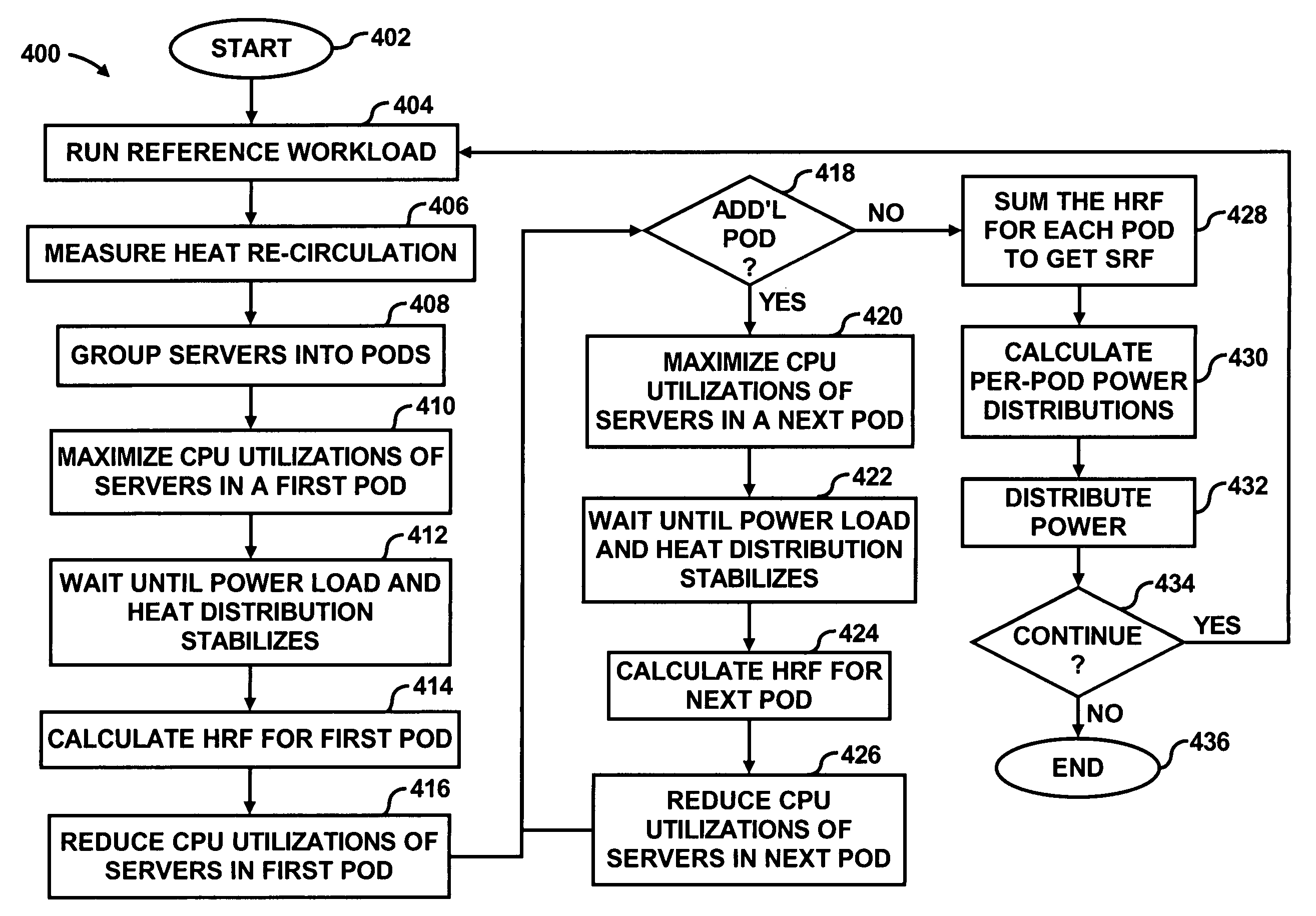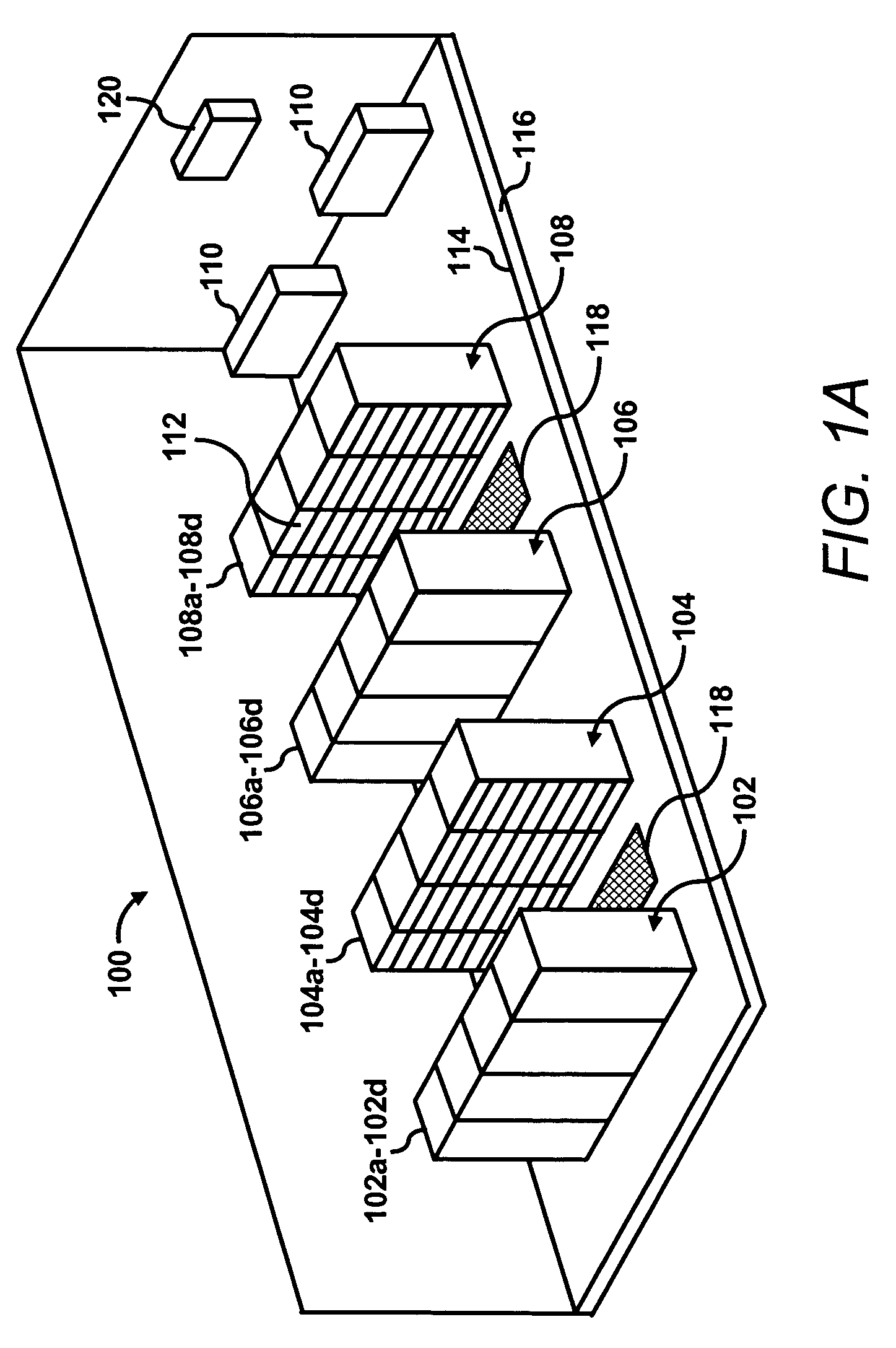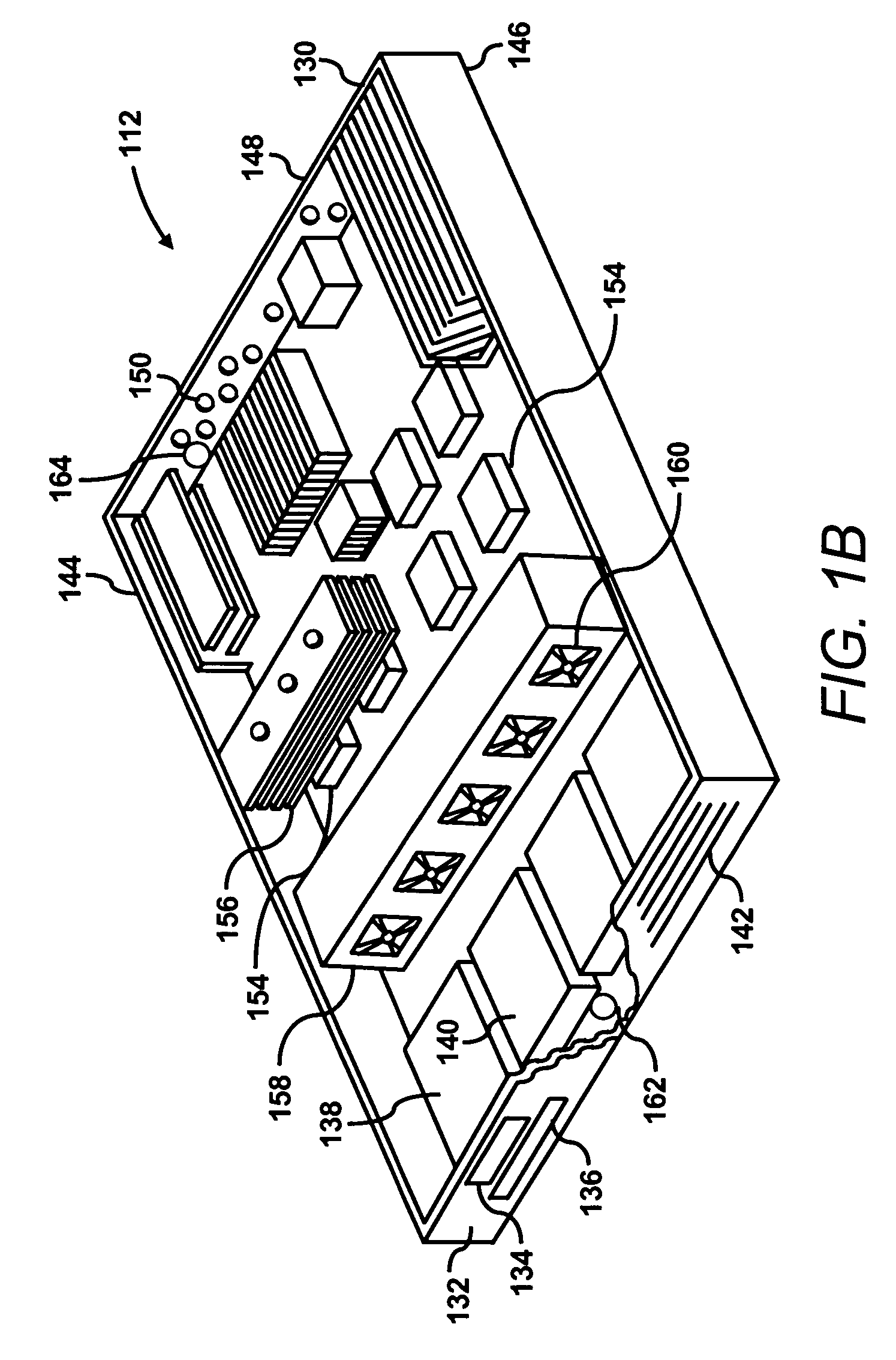Workload allocation based upon heat re-circulation causes
a technology of workload allocation and heat recirculation, applied in the field of workload allocation based upon heat recirculation, can solve the problems of increasing the inefficiencies of conventional cooling arrangements, exacerbated problems, and excessive and inefficient cooling solutions, and achieve the effect of reducing costs
- Summary
- Abstract
- Description
- Claims
- Application Information
AI Technical Summary
Benefits of technology
Problems solved by technology
Method used
Image
Examples
Embodiment Construction
[0012] For simplicity and illustrative purposes, the present invention is described by referring mainly to an exemplary embodiment thereof. In the following description, numerous specific details are set forth in order to provide a thorough understanding of the present invention. It will be apparent however, to one of ordinary skill in the art, that the present invention may be practiced without limitation to these specific details. In other instances, well known methods and structures have not been described in detail so as not to unnecessarily obscure the present invention.
[0013] The effectiveness of a server thermal package generally depends on external environmental controls to maintain inlet air temperatures within a safe operating range below the “redline” of approximately 25° C. A variety of factors may cause temperature variations and thermal hot spots due to, for instance, heat re-circulation, in a geographically collocated cluster of compute equipment (hereinafter “data c...
PUM
 Login to View More
Login to View More Abstract
Description
Claims
Application Information
 Login to View More
Login to View More - R&D
- Intellectual Property
- Life Sciences
- Materials
- Tech Scout
- Unparalleled Data Quality
- Higher Quality Content
- 60% Fewer Hallucinations
Browse by: Latest US Patents, China's latest patents, Technical Efficacy Thesaurus, Application Domain, Technology Topic, Popular Technical Reports.
© 2025 PatSnap. All rights reserved.Legal|Privacy policy|Modern Slavery Act Transparency Statement|Sitemap|About US| Contact US: help@patsnap.com



